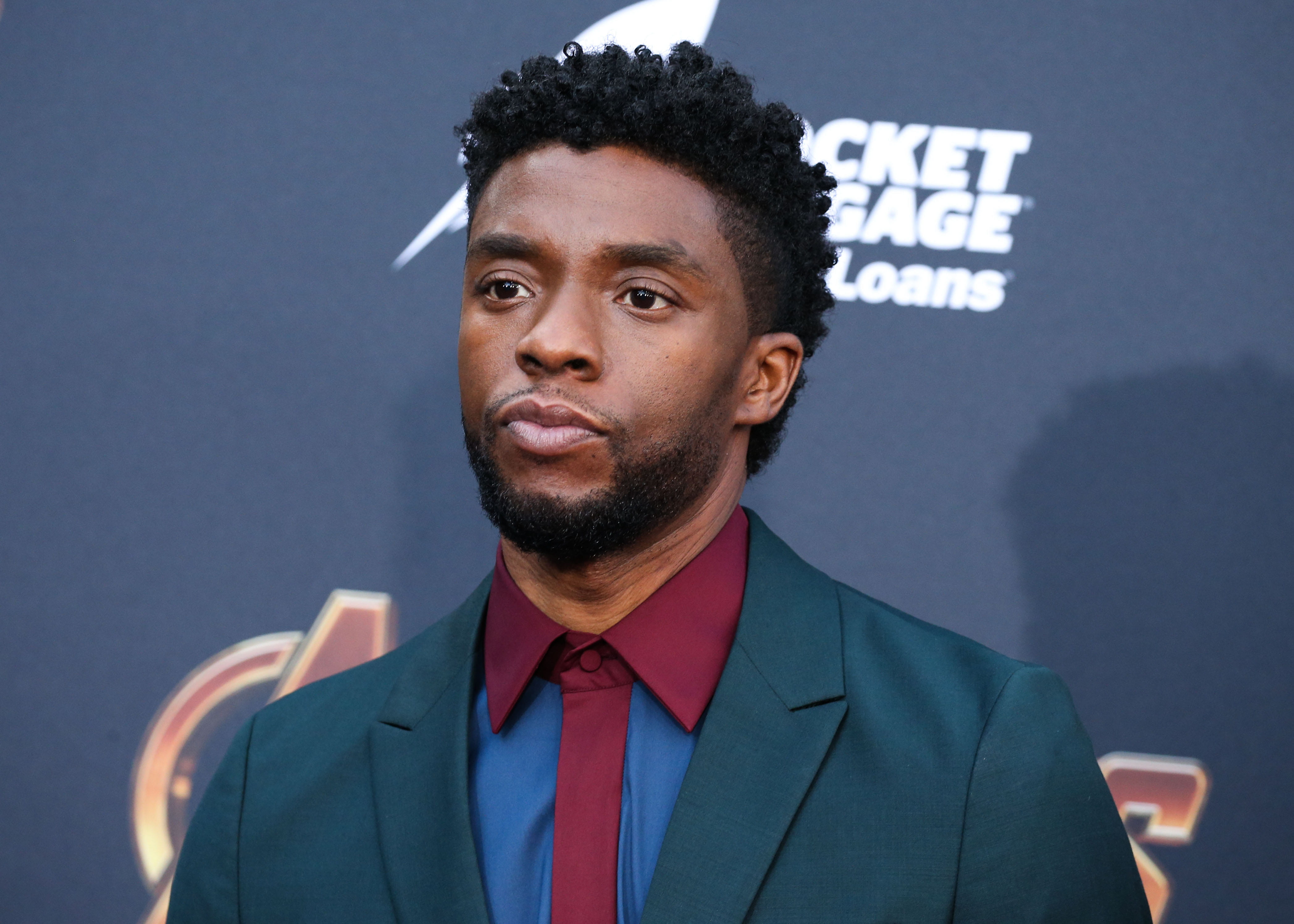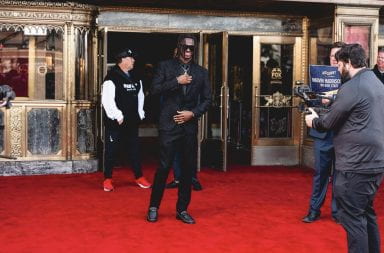
Actor Chadwick Boseman died Aug. 28 at the age of 43 from colon cancer. He played the role of many prominent Black figures on screen including King T’Challa in Marvel Studios’s “Black Panther.” Credit: Image Press Agency via TNS
Film fanatics felt shockwaves worldwide over the weekend after news surfaced that actor Chadwick Boseman died in his home at the age of 43.
The news was shared on the actor’s Twitter account Friday at 7:11 p.m. in a post explaining Boseman’s four-year battle with colon cancer.
“A true fighter, Chadwick persevered through it all, and brought you many of the films you have come to love so much,” the tweet reads.
Boseman played the role of many prominent Black figures on screen. He played Jackie Robinson, the first Black Major League Baseball player in “42,” R&B singer James Brown in “Get on Up,” Supreme Court Justice Thurgood Marshall in “Marshall” and King T’Challa in Marvel Studios’s “Black Panther.”
The post went on to say Boseman endured multiple surgeries and chemotherapy during the filming of “Marshall,” “Da 5 Bloods,” “Ma Rainey’s Black Bottom” and several other films.
From 2016, when Boseman was diagnosed with cancer, until now, he played roles in 10 completed films and one in pre-production, according to IMDb’s website.
Dave Filipi, director of the film and video department at the Wexner Center for the Arts, said for him, “Black Panther” and “42” are Boseman’s two most impactful films.
Filipi said he is not in a position to speak to the importance of what representation in film means for the Black community, but he can speak on the importance to his 12-year-old daughter, who is a person of color and a big fan of “Black Panther.”
“[Representation] means everything. I mean, having her be able to read comic books with Black girl characters, which when I was growing up there were like none of that, and she has many choices and it’s huge,” Filipi said.
David Malloy, a fourth-year in business finance, said that Boseman’s roles gave the Black community something to be proud of, especially in Atlanta where he lived during the production of many of the films Boseman starred in.
“Just to see pride on the faces of people as we walked around, whether it was ‘Wakanda Forever’ or we were talking about Jackie Robinson, or hell, even talking about Thurgood Marshall,” Malloy said. “Ultimately, I feel like his impact on the culture was empowerment.”
Malloy also acknowledged Boseman’s impact on the representation of Black people in film. He credited “Black Panther” with being the first film made by a major studio that was entirely about Black people, as well as producing a story that showed the continent of Africa in a positive manner. Malloy said “Black Panther” shows Africa as being “interesting,” “technologically advanced” and “badass.”
Even in his passing, Malloy said he believes Boseman will continue to be an inspiration to future generations.
“That’s the cool thing about movies, they’re a moment in time, you know?” Malloy said. “And being that they’re a moment in time, you can always go back and reflect or use them for inspiration, and I feel like that’s exactly what’s going to happen with Chadwick Boseman.”
This story was updated Tuesday at 10:24 a.m.


